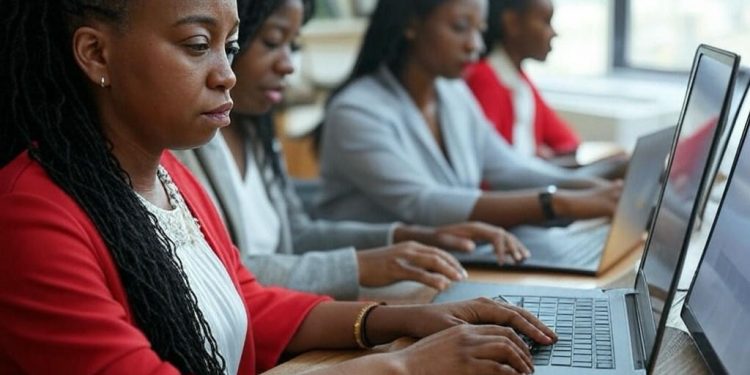In commemoration of International Women’s Day, Media Rights Agenda (MRA) has called on media stakeholders to urgently address the challenges faced by female journalists, urging them to create an environment that promotes gender equality, safety, and opportunities for women to thrive in leadership roles within newsrooms and decision-making spaces.
In a statement issued by MRA’s Programme Officer, Ms. Ayomide Eweje, MRA highlighted some of the significant barriers that women in the media face, including gender inequality, limited leadership opportunities, and safety concerns.
Despite these challenges, Eweje noted that female journalists have continued to play a pivotal role in educating the public, holding those in power accountable, and contributing to societal development.
“Despite their critical role in strengthening democracy and amplifying marginalized voices, female journalists in Nigeria continue to face threats, harassment, and violence, both online and offline,” Eweje said.
She emphasized the need for collective action to ensure the safety and well-being of female journalists, urging a collaborative effort from media houses, civil society organizations, government agencies, and the public.
Eweje further highlighted the vital role that women in the media play in diversifying voices and ensuring a more inclusive media landscape.
She, however, lamented that the increasing incidents of harassment, intimidation, cyberbullying, and other forms of violence against female journalists has called for the need for stronger legal protections and institutional safeguards.
Eweje pointed out that attacks, many of which are criminal in nature, often go unpunished. “We need stronger legal frameworks and institutional safeguards to combat impunity for these attacks. A lack of accountability only emboldens perpetrators,” she remarked. The statement called for immediate action to address both the physical and digital threats faced by female journalists in the country.
She recommended a multi-faceted approach to protect female journalists, which includes enforcing existing laws protecting journalists, adopting gender-sensitive policies, providing cybersecurity training to navigate online threats, and ensuring swift prosecution of those who commit crimes against journalists. Eweje also highlighted the importance of implementing initiatives aimed at increasing women’s representation in media leadership roles.
“Media organizations and media professional bodies must commit to gender-inclusive policies, including those that address workplace harassment; create mechanisms for swift action when female journalists are threatened; and ensure equal opportunities for women to lead and influence the profession,” Eweje said.
Eweje stressed that a free and safe press is essential to a thriving democracy. “A free and fair media sector must reflect the voices of all, particularly women in positions of authority and influence,” she said.
She emphasized that protecting female journalists is not only vital for gender equality but also for media freedom in Nigeria.
Eweje reaffirmed MRA’s commitment to advocating for a media environment where female journalists can work without fear of harassment, discrimination, or violence.

